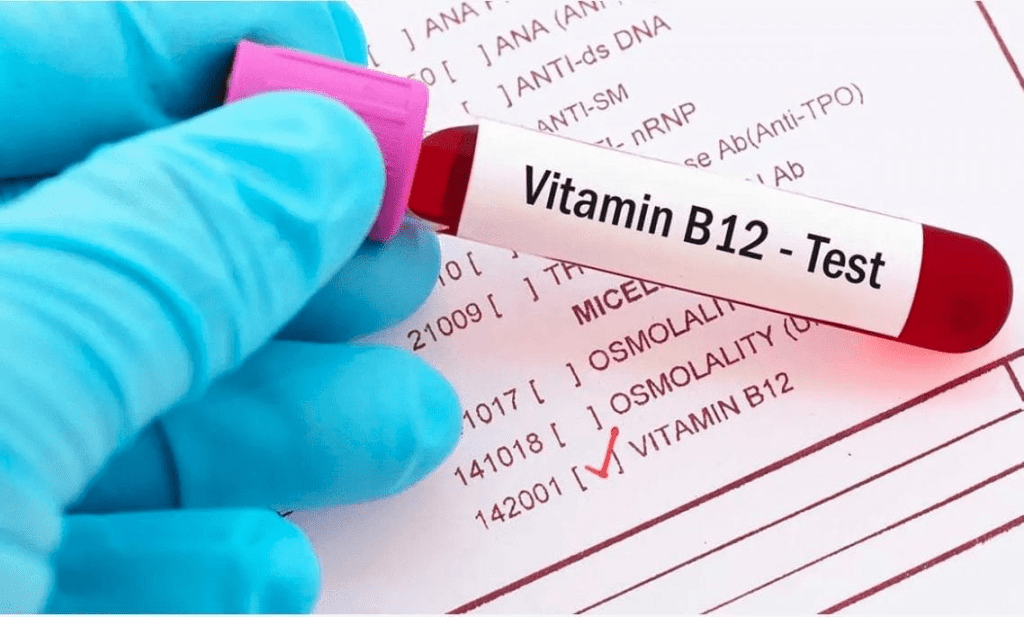Vitamin B12 might not get as much attention as vitamin C or D, but don’t let that fool you—it’s essential to your survival. This powerful nutrient helps your body produce red blood cells, supports nerve function, and keeps your brain sharp. But here’s the catch: your body doesn’t make it on its own.
And when you’re running low on B12, your body will start waving red flags. The problem is, most people ignore them—or worse, confuse them with something else. Let’s fix that.
If you’re feeling “off” and can’t quite put your finger on why, this list of 13 subtle (and not-so-subtle) signs could be exactly what you need to read today.
What Causes Vitamin B12 Deficiency?

Before diving into the symptoms, let’s talk about what causes the deficiency in the first place. It’s not always about eating poorly (although that plays a role). You might be at risk if you:
- Follow a strict vegan or vegetarian diet
- Have digestive disorders like Crohn’s or celiac disease
- Take medications like metformin or acid reducers
- Are over 50 (aging affects nutrient absorption)
- Have undergone weight loss surgery
- Struggle with pernicious anemia, a condition that limits B12 absorption
If any of that sounds like you, keep reading closely.
Fatigue and Weakness
Let’s start with the most common clue—chronic fatigue. If you’re getting decent sleep but still feel completely wiped out, your body may be low on B12.
Why? Because B12 is needed to make red blood cells, which carry oxygen. No B12, no oxygen. And without oxygen, your muscles and brain can’t perform well—cue the constant yawning and sluggish mornings.
Pale or Jaundiced Skin
Look in the mirror. Are you looking unusually pale or a little yellow? That might not just be bad lighting.
A B12 shortage messes with red blood cell production, leading to a type of anemia that makes your skin look washed out. In more severe cases, broken-down red cells can even give your skin a yellowish tint—especially in the whites of your eyes.
Video : 13 Warning Signs Of Vitamin B12 Deficiency You Must Not Ignore
Numbness and Tingling Sensations
Ever feel like your feet or hands are tingling for no reason? That “pins and needles” feeling might not just be because you slept weird.
Vitamin B12 keeps your nervous system humming. When you’re deficient, the protective coating around your nerves starts to break down, leading to sensations that feel like static electricity under your skin.
Difficulty Walking or Balance Issues
If your balance seems off or you’re stumbling more than usual, your nerves could be screaming for help.
As B12 deficiency progresses, nerve damage can become more severe. This makes it harder for your brain to coordinate movements. You might notice this first when going up stairs, turning corners, or walking in the dark.
Cognitive Problems and Memory Loss
Think you’re too young for “senior moments”? Think again.
Brain fog, memory lapses, and even confusion can result from low B12 levels. Since your brain relies on oxygen and healthy nerve function, a deficiency can lead to cognitive decline over time. Don’t brush it off—especially if you’re forgetting simple things.
Mood Changes and Depression
You’re not imagining it. Low B12 has been linked to mood disorders like depression and anxiety.
Why? It comes back to neurotransmitters—specifically serotonin and dopamine. B12 helps your brain produce and regulate these mood-balancing chemicals. When you’re deficient, your emotional state can take a serious hit.
Glossitis and Mouth Ulcers
Your tongue can say a lot about your health—literally.
A swollen, red, smooth tongue (known as glossitis) is a classic sign of B12 deficiency. You may also notice burning, soreness, or even ulcers in the corners of your mouth. If eating spicy food has suddenly become torture, B12 might be the missing puzzle piece.

Shortness of Breath and Dizziness
Feeling lightheaded after walking across the room? You’re not just out of shape.
Without enough B12, your body can’t make enough red blood cells to carry oxygen. That leads to shortness of breath, especially during physical activity, and occasional dizzy spells—even when you’re just standing up.
Vision Problems
Seeing spots? Blurry vision? In rare but serious cases, B12 deficiency can actually damage the optic nerve that sends visual information from your eyes to your brain.
While it’s not super common, when it happens, it’s serious. And thankfully, vision loss due to B12 deficiency is often reversible—if you catch it in time.
High Heart Rate
A rapid heartbeat could be your heart’s way of overcompensating.
With fewer red blood cells circulating oxygen, your heart has to pump harder and faster to keep things running. So if you’ve noticed an increase in heart rate—especially at rest—it’s worth checking your B12 levels.
Digestive Issues
You might not connect bloating, nausea, or diarrhea with a vitamin deficiency—but B12 can impact your gut more than you think.
Some people experience a range of digestive symptoms when they’re low on B12. These might come and go, making them harder to pinpoint. But if you’ve ruled out food intolerances and still feel off, it could be nutrient-related.

Unexplained Weight Loss
If the pounds are slipping off without trying, it might not be a blessing in disguise.
Low B12 levels can reduce your appetite, affect digestion, and even mess with your metabolism. This combo often results in unintended and unexplained weight loss—something your doctor should definitely know about.
Mouth Sensations and Burning
That burning or tingling sensation in your mouth isn’t just annoying—it might be a neurological issue.
Often overlooked, a burning tongue or prickling feeling inside your mouth could point to B12 deficiency. If brushing, eating, or even drinking water feels uncomfortable, don’t ignore it.
How to Diagnose and Treat Vitamin B12 Deficiency
The good news? B12 deficiency is usually easy to detect with a simple blood test. Once diagnosed, your doctor might recommend:
- Dietary adjustments (more meat, eggs, dairy, or fortified cereals)
- Oral supplements (especially for vegetarians or mild deficiencies)
- B12 injections (for severe deficiencies or absorption issues)
The key is to catch it early—before nerve damage becomes permanent.
Video : How To Increase Vitamin B12 Levels | Foods You Should Eat if You Have a B12 Deficiency
Conclusion
Vitamin B12 is one of those nutrients that quietly keeps your body functioning at full speed—until it doesn’t. And when your levels dip, your body will let you know in some pretty dramatic ways.
From brain fog to balance issues, heart palpitations to strange tongue sensations, the signs are there if you’re paying attention. So if anything on this list rang a bell, don’t ignore it. Talk to your healthcare provider, get tested, and take charge of your health.
After all, something as simple as a vitamin should never stand in the way of feeling your best.


